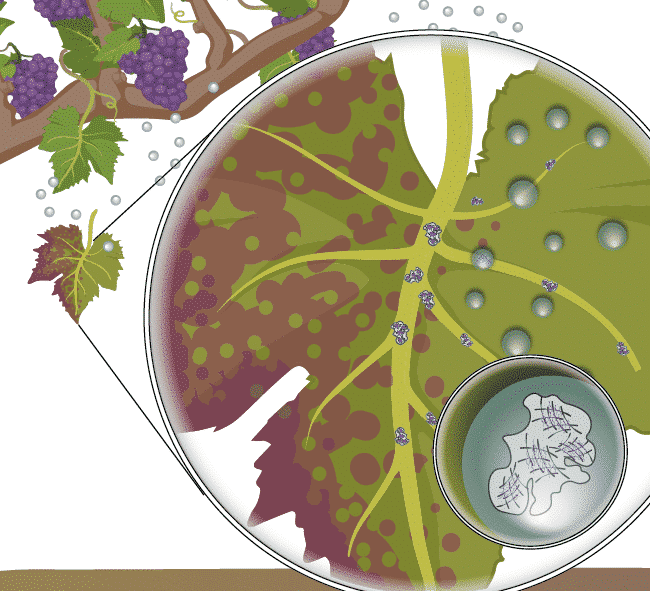
Foliar delivery of siRNA particles for treating viral infections in agricultural grapevines
2Robert H. Smith Department of Agriculture Food and Environment, The Hebrew University, Israel
3Department of Biology, Technion – Israel Institute of Technology, Israel
4Department of Organic Chemistry, Weizmann Institute of Science, Israel
Grapevine leafroll disease (GLD) is a globally spreading viral infection that causes major economic losses by reducing crop yield, plant longevity, and berry quality, with no effective treatment. Grapevine leafroll associated virus-3 (GLRaV-3) is the most severe, prevalent GLD strain affecting wine production. In this study, the ability of RNA interference (RNAi) gene-silencing pathway, to treat GLRaV-3 in infected Cabernet Sauvignon grapevines is evaluated. Lipid-modified polyethylenimine (lmPEI) is synthesized as the carrier for long double-stranded RNA (dsRNA, 250-bp-long) that targets two conserved genes in the GLRaV-3 genome. Self-assembled dsRNA–lmPEI particles, 220 nm in diameter, display inner ordered domains spaced 7.3 ± 2 nm from one another, correlating to lmPEI wrapping spirally around the dsRNA. The particles effectively protect RNA from degradation by ribonucleases and show to increase uptake rate into plant cells as a result of the lipid component comprising the RNA carrier. In three field experiments, a single dose of foliar sprayed treatment of the RNA-particles knocks down GLRaV-3 titer, and multiple doses of the treatment keep the viral titer at baseline and trigger recovery of the vine and berries. This study demonstrates RNAi as a promising platform for treating viral diseases in agriculture.

Powered by Eventact EMS